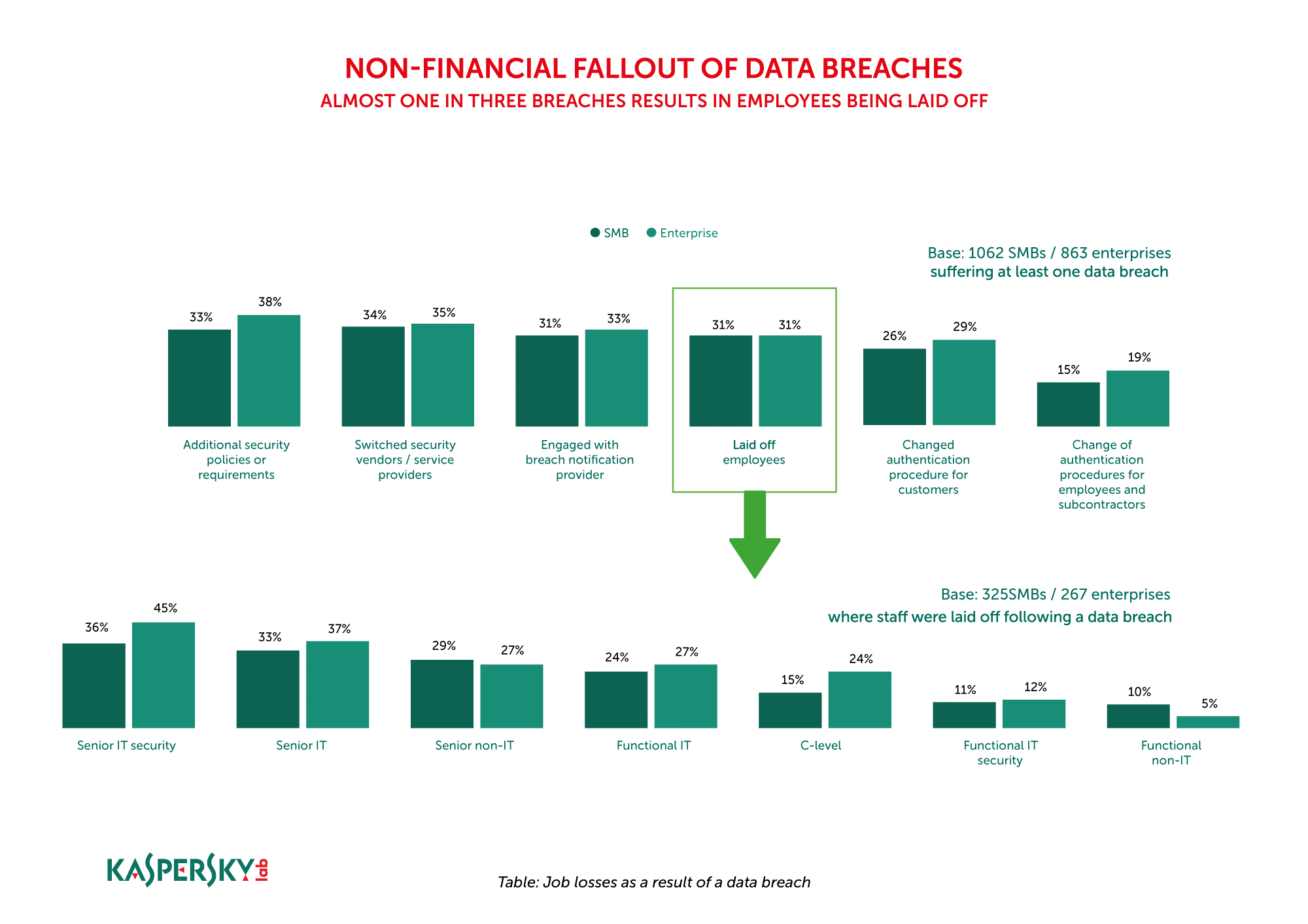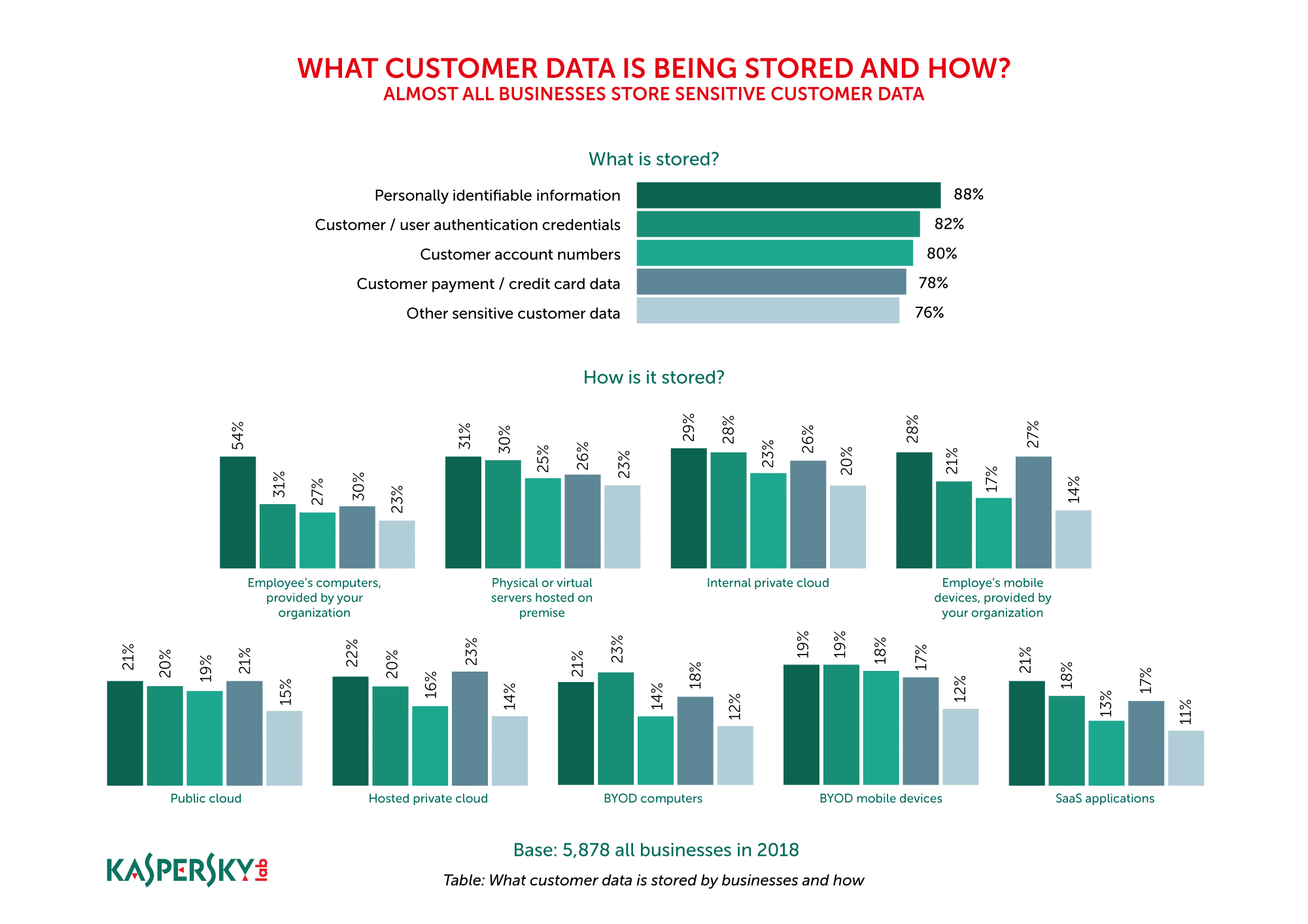When a data breach strikes, the damage can reach further than a business’s finances, reputation, and customer privacy.
When a data breach strikes, the damage can reach further than a business’s finances, reputation, and customer privacy. A breach can also severely impact the careers of individuals at the company involved. According toa new report from Kaspersky Lab and B2B International, almost one-in-three (31%) data breaches in the past year have led to people losing their jobs. And, among these, at 29% of SMBs and 27%of enterprises, it was senior non-IT employees that were laid off.
Breaking careers with data breaches
A data breach in a company can be a life-changing experience for both its customers and employees, according to the recent report from B2B International and Kaspersky Lab ‘From data boom to data doom: the risks and rewards of protecting personal data’. The study shows that 43% of businesses worldwide had at least one data breach in the last year, of which in two-fifths of cases, customer PII was affected (41% for SMBs and 40% for enterprises). As for the staff involved, they don’t always — not even C-level — get to keep their jobs afterwards.

The range of employees laid off after a data breach demonstrates that the incident can affect anyone, and 2017 alone saw a wide variety of people fired as a result of data breaches: from CEOs to a regular employees exposing the company customer data.
Of course, for businesses this means more than just lost ‘talent’: 45% of SMBs and 47% of enterprises have had to pay compensation to the customers affected, over a third - 35% and 38% respectively - have reported problems attracting new customers, and over a quarter of SMBs (27%) and of enterprises (31%) have had to pay penalties and fines.
Data beyond control adds to the risk
In modern business, storing sensitive personal data is practically unavoidable: 88% of businesses collect and store their customers’ PII, and 86% collect and store employee PII, according to the report. Moreover, in today’s increasingly complex environment, new regulations like GDPR mean that storing personal information comes with compliance risks too.
What makes these risks even more tangible is the actual reality of how businesses store data: approximately 20% of sensitive customer and corporate data resides outside the corporate perimeter: in public cloud, BYOD devices and in SaaS applications, which makes controlling the data flow and keeping it safe a challenge for businesses.

Data protection measures beyond policies
The report says that 86% of businesses have at least some form of data security and compliance policy in place. However, a privacy policy itself isn’t a guarantee that data will in fact be handled properly.
There’s a need for security solutions that can protect data across the whole infrastructure – including cloud, devices, applications and more. Cybersecurity awareness among IT staff and beyond also needs to be improved, as more and more business units are now working with data, and thus need to understand how to keep it safe.
“A data breach doesn’t only cause devastation to a business; it also has a major impact on people’s personal lives, regardless of whether they are employees or customers. This is a wake-up call to all organisations that lack of cybersecurity protection can have real-life implications and should be a priority for all businesses. With new developments in technology, such as the cloud, data is now transmitted over multiple channels. Companies now, more than ever, should ensure they have robust data protection strategies in place – especially as GDPR is now enforceable,” says David Emm, Principle Security Researcher at Kaspersky Lab.
Kaspersky Lab offers solutions for various business needs in terms of endpoint protection, DDoS prevention, hybrid cloud security, advanced threat defense and cybersecurity services. To learn more about our Next Generation enterprise portfolio and products for small and medium sized businesses, please visit the official website.
